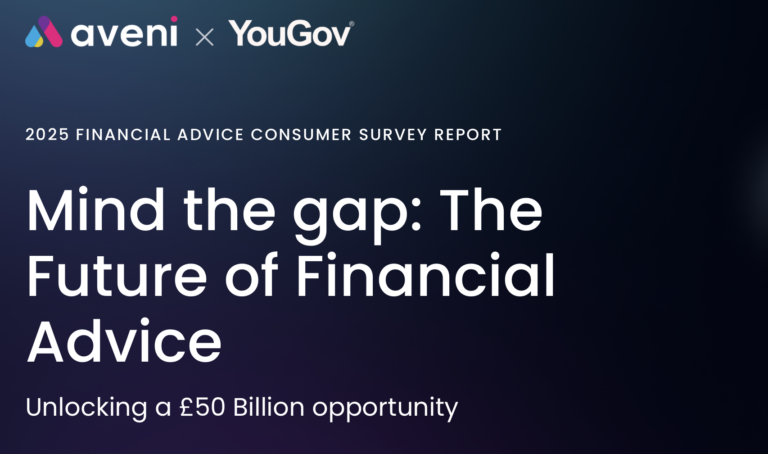The Future of Financial Advice: Consumer Expectations for 2025 and Beyond

The Financial Advice Consumer Survey 2025, conducted by Scottish fintech Aveni in collaboration with YouGov, highlights key trends shaping the future of financial advice in the UK.
With rising concerns about financial security, regulatory demands for enhanced consumer protection, and the increasing role of artificial intelligence (AI) in financial services, this report highlights the areas where financial firms must innovate to stay ahead.
There full survey can be found here.
Key Findings from the Survey
Consumers Demand More Personalised and Accessible Advice
A growing number of consumers expect financial advice to be tailored to their specific needs rather than generic recommendations. According to the survey, many individuals feel underserved by traditional financial advisory models and are looking for more dynamic, AI-driven solutions that provide real-time insights.
Trust in Financial Advice is at a Crossroads
Trust remains a critical issue in financial services. While robo-advisors and digital platforms are gaining traction, many consumers still prefer human interaction for major financial decisions. (42% of respondents expressed concerns about receiving financial advice solely from AI-powered tools).
AI and Automation are Reshaping Financial Advice
AI is playing a larger role in financial planning, from analysing spending habits to recommending investment strategies. However, consumers have mixed feelings about relying solely on AI-driven solutions.
Regulation and Consumer Protection are Driving Change
As regulatory bodies push for greater consumer protection, financial firms must adapt to new compliance standards. The Consumer Duty Act, for example, is set to reshape how firms engage with customers, ensuring fairer outcomes and more transparent advice. (72% of respondents stated they want clearer explanations of financial products and risks).
Rising Financial Anxiety and the Need for Proactive Guidance
Economic uncertainty, inflation, and concerns about long-term financial stability are leading consumers to seek proactivefinancial guidance rather than reactive advice.
What Does This Mean for Financial Firms?
The findings highlight several key takeaways for financial firms and advisors:
- Embrace AI-powered financial tools while maintaining a human-centric approach.
- Increase transparency around fees, data usage, and product recommendations.
- Develop digital-first advisory models that cater to on-demand financial guidance.
- Improve consumer education to enhance engagement and financial confidence.
- Stay ahead of regulation by prioritising customer outcomes and compliance.
Read the full report here.



